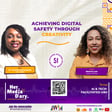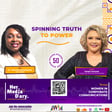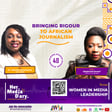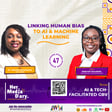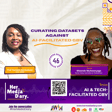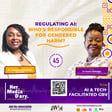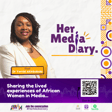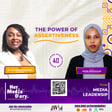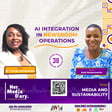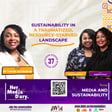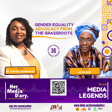
Her Media Diary Episode 2: Ruona Meyers
In this episode with Emmy-nominated journalist, Ruona J. Meyer, we discuss investigative journalism, how to pitch yourself and your stories, and making use of the platforms available to you. Her undercover investigation ‘Sweet, Sweet Codeine’ highlighted the plight of young Nigerians addicted to codeine syrup. Less that 24 hours of broadcasting Sweet, Sweet Codeine, the import and manufacture of codeine-based syrup was banned by the Nigerian government. In 2019, Ruona became the first Nigerian journalist to be nominated for an International Emmy Award.
Interviewing Ruona was insightful, fun and real. Her journey is testimony to the consequences of hard-work and dedication. Follow her on Twitter @RGAMeyer
Yemisi
Links mentions
Centre for Investigative Journalism
Wole Soyinka Investigative Journalism Centre
About Ruona J. Meyer
Ruona Meyer is an Emmy-nominated, multimedia journalist with 17 years’ experience in print, radio, wire agency, TV and digital outlets across Nigeria, South Africa, and the UK. Ruona is currently a PhD candidate at De Montfort University, Leicester, UK; her research covers the impact of digital technologies on investigative journalism production within African-Diaspora networks.
Ruona’s investigative documentary Sweet Sweet Codeine gave Nigeria and the BBC World Service its first Emmy nomination (2019), and won the ONE World Media Television Documentary Award category as well as The BBC News Award for Investigation of the Year in June 2019. A training consultant, Ruona has designed and delivered courses for postgraduate students and working journalists in the UK, Nigeria and Ghana.
